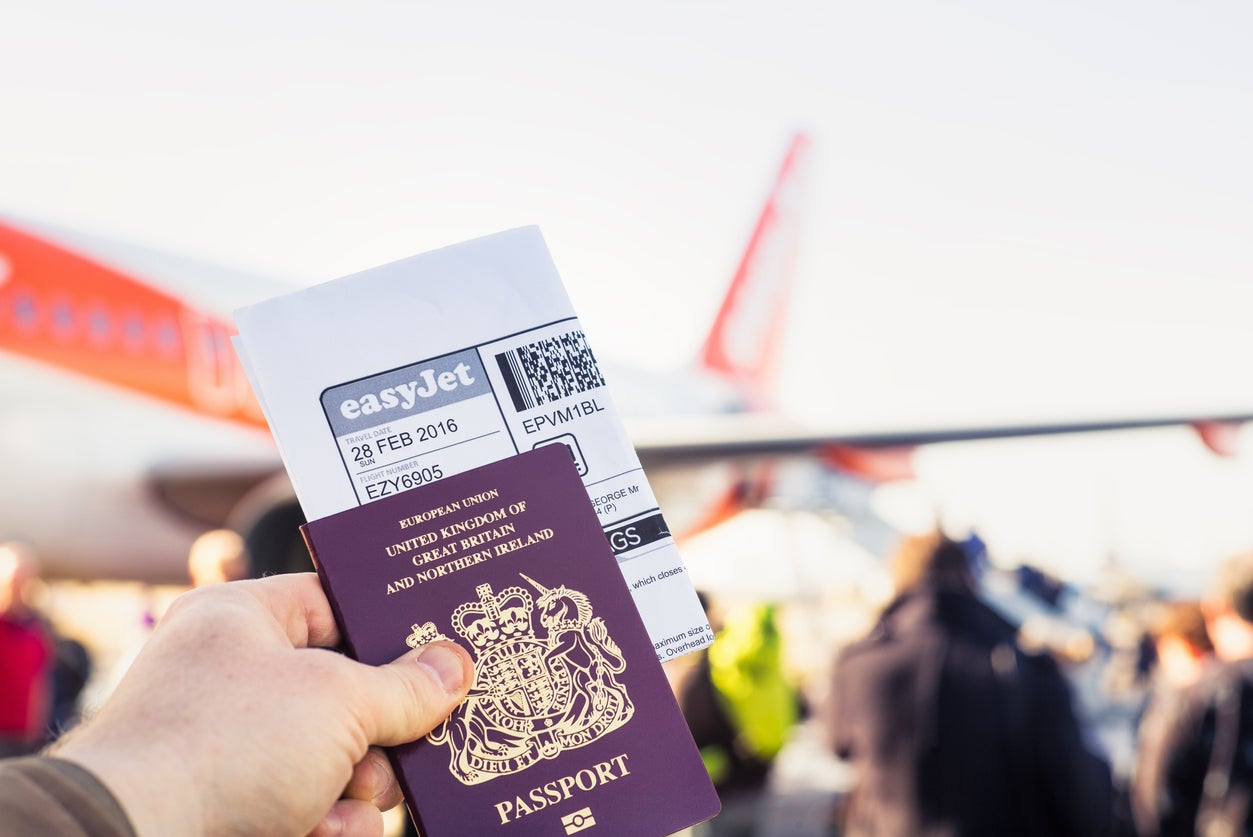‘Seized by an over-abundance of caution’: How did easyJet and Ryanair get the rules wrong on passports?
The Man Who Pays His Way: ‘An extraordinary act of financial and reputational self-harm by two of the world’s best airlines’

Your support helps us to tell the story
From reproductive rights to climate change to Big Tech, The Independent is on the ground when the story is developing. Whether it's investigating the financials of Elon Musk's pro-Trump PAC or producing our latest documentary, 'The A Word', which shines a light on the American women fighting for reproductive rights, we know how important it is to parse out the facts from the messaging.
At such a critical moment in US history, we need reporters on the ground. Your donation allows us to keep sending journalists to speak to both sides of the story.
The Independent is trusted by Americans across the entire political spectrum. And unlike many other quality news outlets, we choose not to lock Americans out of our reporting and analysis with paywalls. We believe quality journalism should be available to everyone, paid for by those who can afford it.
Your support makes all the difference.Simon Calder, also known as The Man Who Pays His Way, has been writing about travel for The Independent since 1994. In his weekly opinion column, he explores a key travel issue – and what it means for you.
Alexander Johnston has a question.
“I have read all your articles about the validity of passports. My question is: why do airlines like Ryanair and easyJet get it wrong?” writes The Independent reader.
“One would have thought that they would have an interest in facilitating air travel, not antagonising their customers, and not risking claims for compensation.
“They are sophisticated organisations. Do they have some incentive to behave as they do?”
I have done my best to come up with an answer.
First, the backdrop. It was clear after the Brexit withdrawal agreement took effect that British passport holders – and the travel industry – needed to be absolutely clear about the validity rules for UK visits to the European Union (and wider Schengen area).
At the time, Covid was raging, which camouflaged the issue: hardly anyone was travelling. But it was important to know the exact conditions for entry given the inevitable surge in travel once restrictions were lifted.
With that in mind, I spent a long time in the autumn of 2021 liaising with officials in the home affairs department of the European Commission in Brussels. They provided an official statement confirming exactly the rules as stated here: firstly, that the issue date is less than 10 years ago on the day of entry; secondly, that the expiry date is at least three months away on the intended day of return.
The organisation spelt out that these tests are independent of each other. A spokesperson told me: “To give a practical example, a non-EU traveller arriving on 1 December 2021 for a 20-days stay in the EU with a passport issued on 2 December 2011 and valid until 2 April 2022 will be allowed entry.”
Immediately, I contacted all the leading airlines and holiday companies, as well as the Foreign Office. I shared the official correspondence and invited them to seek confirmation of their own.
I fondly imagined that would be sufficient. Far from it. Only in the past month have three very big organisations – easyJet, Ryanair and the Foreign Office – accepted my representations and aligned with the European Commission rules.
Why the government chose to make the rules sound more complicated than they are for so long is a question for another day (and possibly a select committee enquiry). Anyway, that Foreign Office decision helped fuel all manner of ludicrous social media myths and was relied upon by airlines to justify their policies.
My best guess is that the airlines decided to turn away thousands of properly documented passengers due to the institutional wariness they have about flying someone to a country for which they do not have the correct paperwork.
Airlines are routinely fined for bringing in a passenger who is ineligible to enter the country. And in an industry where much is outsourced, those penalties are passed on to the ground handling firms. I believe they were seized by an over-abundance of caution – which they could back up by pointing to the ambivalence expressed by the Foreign Office.
As I pointed out several times to the airlines, what the UK government said was irrelevant and had no legal force: only the European Commission’s view counted. At the same time, travellers who easyJet and Ryanair had rejected were switching to British Airways, Jet2 and Wizz Air and flying without problem.
But easyJet and Ryanair doubled down, sticking to invented rules that deprived many previously loyal passengers of their holidays and made the airlines liable to claims for thousands of pounds.
Things got really bad over Easter, which for many families provided the first opportunity to travel for two years. The lowest point was when Ryanair turned away a 15-year-old – and by extension, his family – at Prestwick airport, making the preposterous claim that his passport had expired on its fifth birthday. I recommended they rebooked with Jet2, which flew the family from Edinburgh to Tenerife the following day.
That proved the turning point. Once easyJet and Ryanair came into line the Foreign Office could no longer pretend the rules were trickier than they were. But it remains an extraordinary, unnecessary and baffling act of financial and reputational self-harm by two of the world’s best airlines.
Ryanair and easyJet now need to speak for themselves, compensate the passengers whose journeys they messed up and vow to do better in future.
Join our commenting forum
Join thought-provoking conversations, follow other Independent readers and see their replies
Comments